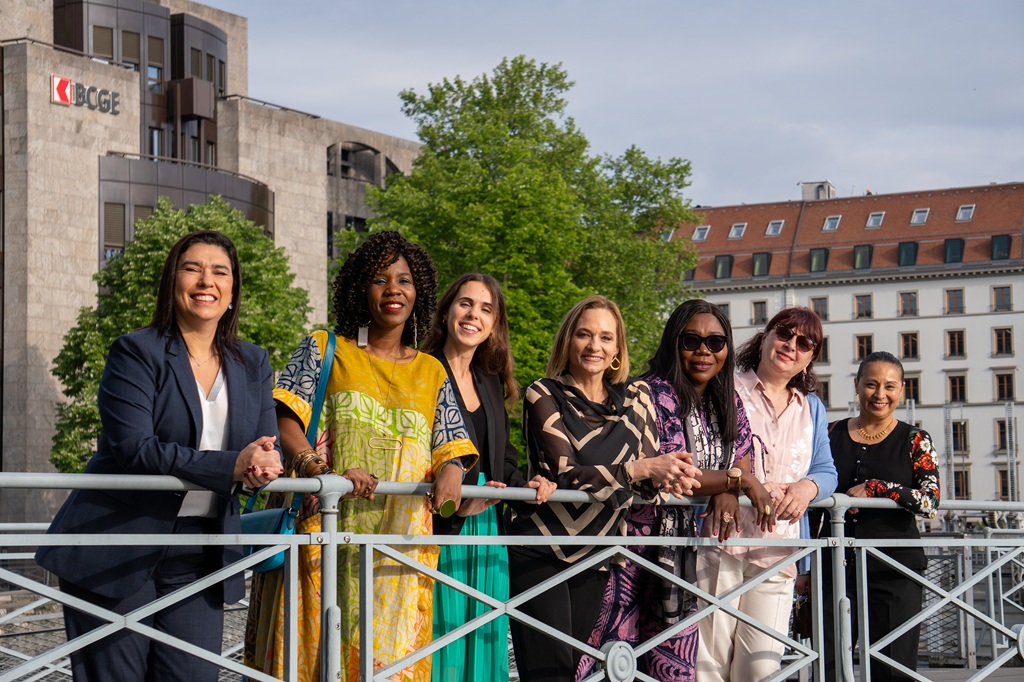
In a context marked by shifting development priorities, rising global health threats and growing pressure on healthcare systems’ sustainability, the urgency to prioritise women and health has never been greater. Despite this, persistent gender biases in healthcare are associated with disadvantages for women, particularly in areas such as cancer, where the gaps in prevention, diagnosis and treatment are especially acute. In low- and middle-income countries (LMICs), these disparities are even more pronounced, with women facing significant barriers as they engage with cancer in complex and multiple roles — as individuals living with and beyond a diagnosis, as caregivers, advocates, health professionals, researchers, and policymakers. As the global community navigates competing crises, ensuring women and health stays at the heart of the agenda is not only a moral imperative, but also an economic and societal necessity.
In Low Human Development Index (HDI) countries, 72% of cancer deaths among women are considered premature (occurring before the age of 70), compared to 36% in high HDI countries. This stark disparity highlights how global inequalities in cancer outcomes disproportionately impact women in low-resource settings. The Lancet Commission on Women, Power and Cancer estimated that 800,000 of the 2.3 million women dying prematurely from cancer yearly could be saved through facilitating access to optimal cancer care. In response to this urgent need, City Cancer Challenge Foundation (C/Can) is working to close these avoidable gaps by integrating a dedicated gender-responsive approach into its health systems strengthening model, ensuring that access to equitable and quality cancer care becomes a reality within its network of supported cities.
Integrating a Gender Lens within Global Health and Cancer Care
In April 2024, with seed funding from Siemens Healthineers, C/Can established a Working Group, comprising seven women leaders from Concepción (Chile), Tbilisi (Georgia), Rosario (Argentina), Nairobi (Kenya), Abuja (Nigeria), Greater Petaling (Malaysia), and Léon (Mexico). Building on insights from the Lancet Commission on Women, Power, and Cancer, the group contributed to the co-design of C/Can’s Women and Health Strategy, grounded in the findings of this landmark report. Each member was encouraged to elevate local perspectives on the unique challenges faced by women in LMICs, including barriers to accessing cancer care, workforce-related challenges, and system-level obstacles.
We’re proud to partner with C/Can to empower women leaders who are shaping cancer care in their communities and driving meaningful change. By understanding and addressing the gender health gap, we can help build more equitable and sustainable health systems for everyone, everywhere.
Elisabeth Staudinger, Member of the Managing Board, Siemens Healthineers
Building on the recommendations of the Working group, C/Can announced, at the Clinton Global Initiative Annual Summit in September 2024, a seven-year (2024–2030), US$10 million initiative: Cities Taking Action for Gender Equity in Cancer Care*. This ambitious programme aims for people in all their diversities across C/Can cities in LMICs to have equitable access to quality, gender-responsive cancer care, leading to improved cancer outcomes and reduced healthcare disparities.

Cities Leading the Way
The initiative is being rolled out first in three demonstration cities, León (Mexico), Nairobi (Kenya), and Tbilisi (Georgia), where cancer care gaps have been identified and an estimated 3.8 million women are living.
Co-Creating Gender-Responsive Health System Blueprints
In each city, a blueprint co-created with local stakeholders and experts, including researchers from the Lancet Commission on Women, Cancer and Power, will guide the design and implementation of a set of interventions supporting gender-responsive health systems that can be scaled nationally and shared globally. C/Can’s Global Gender Group (CGGG – formerly Working Group), has co-created a template implementation plan on “how to build a gender-responsive health system for cancer care”. This includes a toolbox of interventions to carry out along C/Can’s City Engagement Process Framework.
Tbilisi Leads with Initial Consultations
This exciting process has already started in Tbilisi, where the first series of city consultations on gender equity for cancer care were conducted as part of C/Can’s second cycle design workshop. This resulted in 13 recommendations, including “addressing stigma around women’s cancers through targeted Social and Behaviour Change Communication (SBCC) interventions”, “promoting gender-responsive multidisciplinary cancer care (MDT)”, and “promoting gender equity within the health workforce leadership”.
It has been a privilege to connect the dots between the Women, Power and Cancer Lancet Commission’s recommendations and C/Can’s commitment to action. Working with the CGGG and drawing on the group’s leadership and lived experiences has been truly transformational in our collective journey. We are now entering a new phase — ready to implement priority, locally driven solutions that advance gender equity in cancer care.
Meritxell Mallafré-Larrosa, Technical Manager, Research Lead at C/Can.
Local Action for Global Impact
Through developing and connecting global thought leadership with city-level implementation, C/Can translates its women and health commitment into localised, systemic change – so that no woman, no matter where they live, is left behind in the cancer care continuum.
Many times women don’t have leadership roles but they have central roles in families and communities. When cancer care and women’s health are not prioritised, it means that cancer is detected at late stages and late diagnosis means we miss opportunities for treatments, long survival and quality for patients. This results in impacted families and communities, from both social and economic perspectives. This is why we need to take care of women’s health, they are a central pillar of community life.
Dr. Nana Mebonia, CGGG member, Tbilisi (Georgia).
Financing for Women and Health at the World Health Assembly
To further elevate the conversation on women, health, and equity in financing, C/Can hosted the side event Unlocking the Value of Women and Health: A paradigm shift for equity, innovation, and sustainable impact at the 2025 World Health Assembly in Geneva.
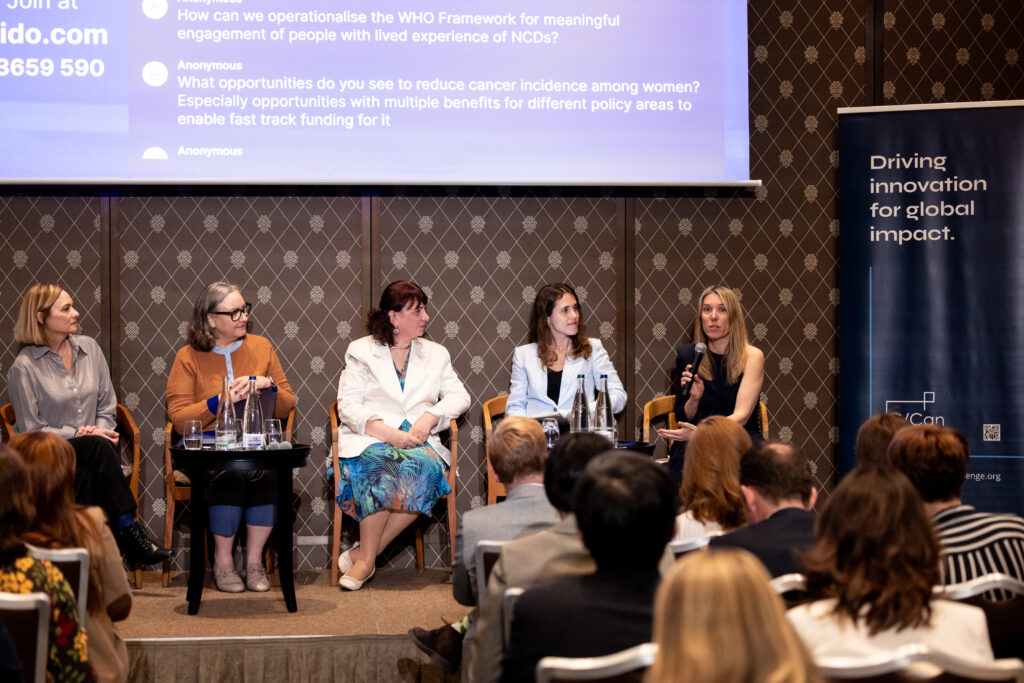
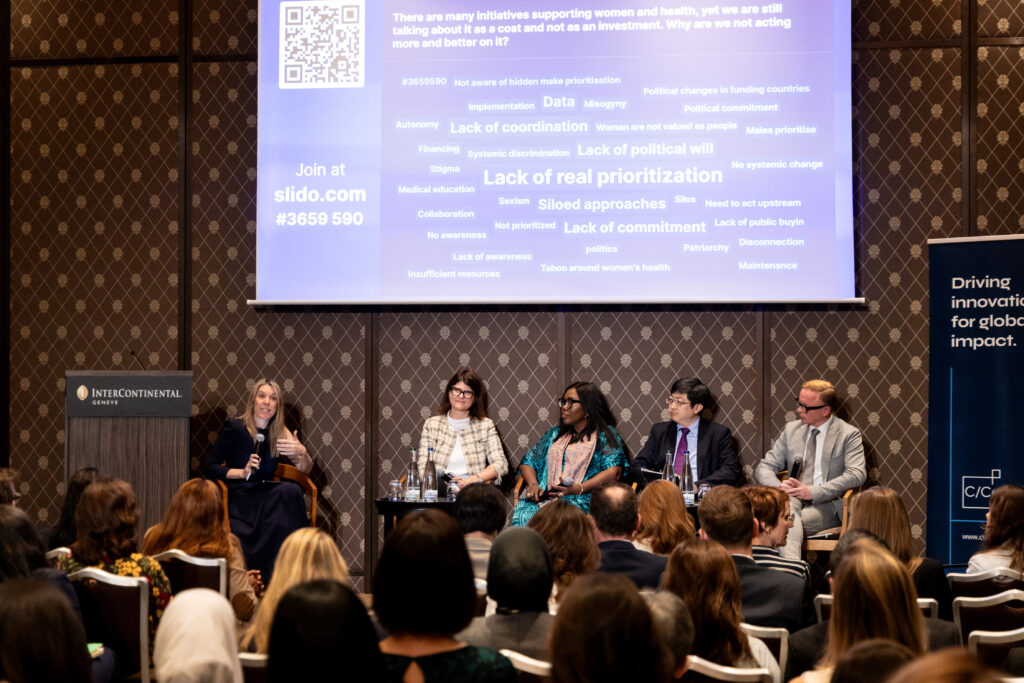
Investing more and smarter in women is not just the right thing to do; it’s the smart thing to do. According to the McKinsey Global Institute, closing gender gaps in health and economic participation could add US$12 trillion to global GDP by 2025.
This reinforces the message that health financing for women is not a cost, but an investment in social stability, economic growth, and resilient health systems. The potential economic impact of investing in women is not just global, but deeply regional. In Africa, for example, advancing women’s equality could generate an additional $316 billion, equivalent to 10 percent of the continent’s GDP by 2025. Across the Asia-Pacific region, similar progress could boost annual GDP by $4.5 trillion, a 12 percent increase over the current trajectory. And in Latin America, achieving full gender parity in the labor market could increase GDP by as much as $2.6 trillion, representing a 34 percent rise over current levels.
These figures underline a clear message: investing in women’s health and empowerment is a catalytic force for economic development, region by region, and around the world.
We have many possibilities to address cancer. More people will have cancer because people live longer, due to social determinants and it is a disease that we need to live with. I think we need to show a more comprehensive approach, how we can save years of life and what that means for our economy. It isn’t just a cost, it is an investment in the gender approach also in terms of economic numbers, how we can make things different and how we can give a better life quality.
Dr. Carolina Goic, CGGG member, Chile.
The Power of Partnerships in Shaping C/Can’s Women and Health Strategy
True to its city-first, multisectoral approach, C/Can drives transformational change from the ground up, working with diverse partners, such as Siemens Healthineers, to implement localised solutions that generate both local and global impact.
Within the Siemens Healthineers–C/Can partnership, this translates into advancing their shared commitment to improving health equity and promoting women’s leadership in global cancer care. This includes, among other efforts, support for the activities of the CGGG.
A recent two-day on-site visit by the CGGG to Siemens Healthineers headquarters in Erlangen, Germany, exemplified the value of cross-sector collaboration, facilitating exchanges between health leaders from LMICs and a private sector partner committed to advancing cancer care solutions for women.
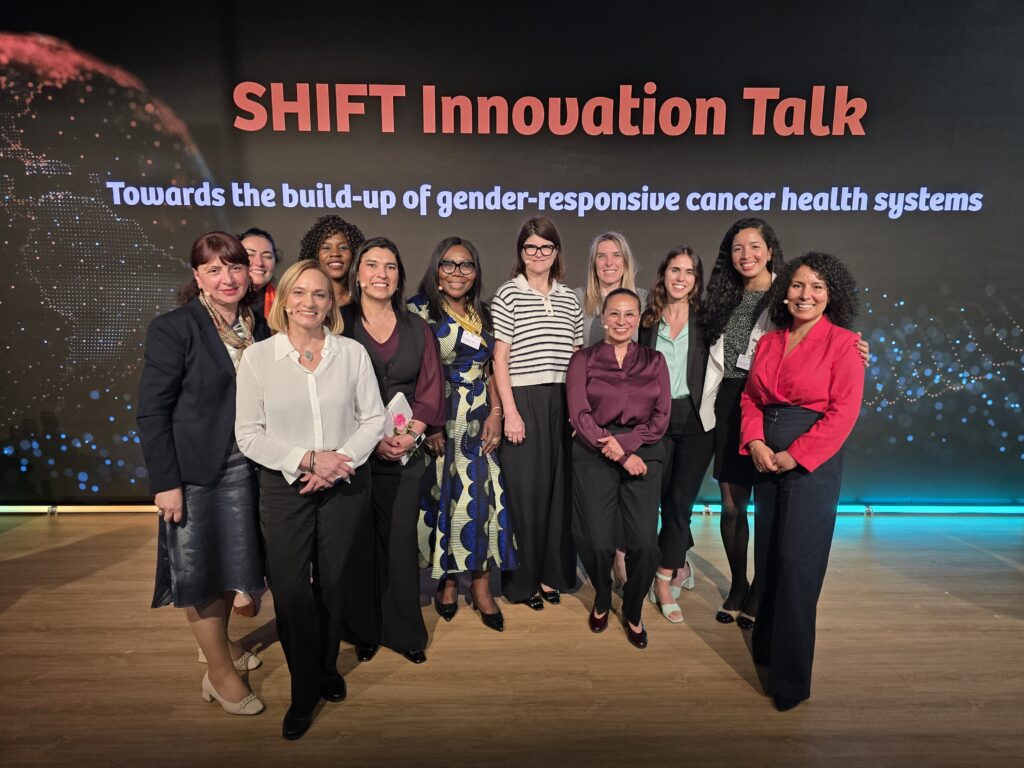
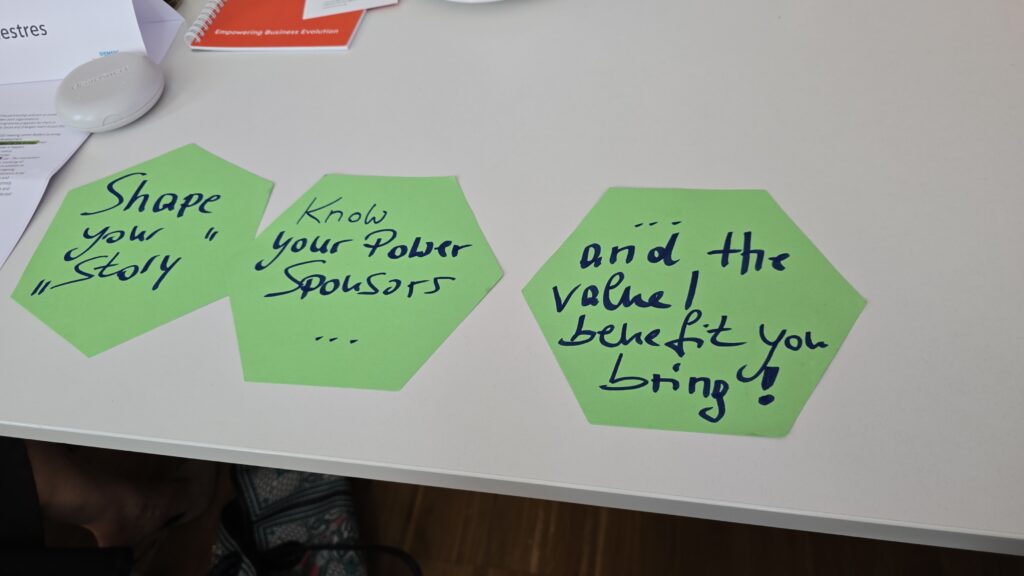
This visit also reinforced how co-creation between local expertise and global innovators can catalyse new ideas for context-specific challenges.
What makes Siemens Healthineers a valuable partner in this journey, is not only its technological leadership, it is its willingness to engage with humility and purpose and a clear sense of social obligation. It’s not just about delivering these innovations, it’s about ensuring these innovations reach the women who need them the most, in ways that are context-sensitive, equitable and sustainable. We need partners who don’t just deliver tools but co-create solutions. Solutions that are developed with communities, in communities, for communities.
Dr. Elia Lara Lona, CGGG member and León City Manager, León (México).
Healthcare systems need to meet women where they are. We need to build gender-intelligence within our systems to tackle this approach. The higher one goes up the ladder in the workforce, the harder it is to see women in leadership positions, which unfortunately means our views are not part of strategy building. C/Can is on the right path with the creation and activation of a group of women that are thinking about the best way to create gender-responsive systems and embed it into the day-to-day of healthcare systems at local level.
Dr. Nwamaka Lasebikan, CGGG member, Abuja (Nigeria).
The reason why I am really excited about this is that we really have an opportunity here through the CGGG and C/Can to intentionally build on the work and recommendations of the Lancet Commission on Women Power and Cancer on how we develop gender responsive health systems. Part of the work we are critically brainstorming around is how we can get our cities critically look at healthcare systems and how to improve cancer care for women. This will ensure that women engage with and are retained and supported in systems, in a timely fashion, from diagnosis through to treatment and survivorship.
Dr. Miriam Mutebi, CGGG member, Nairobi (Kenya).
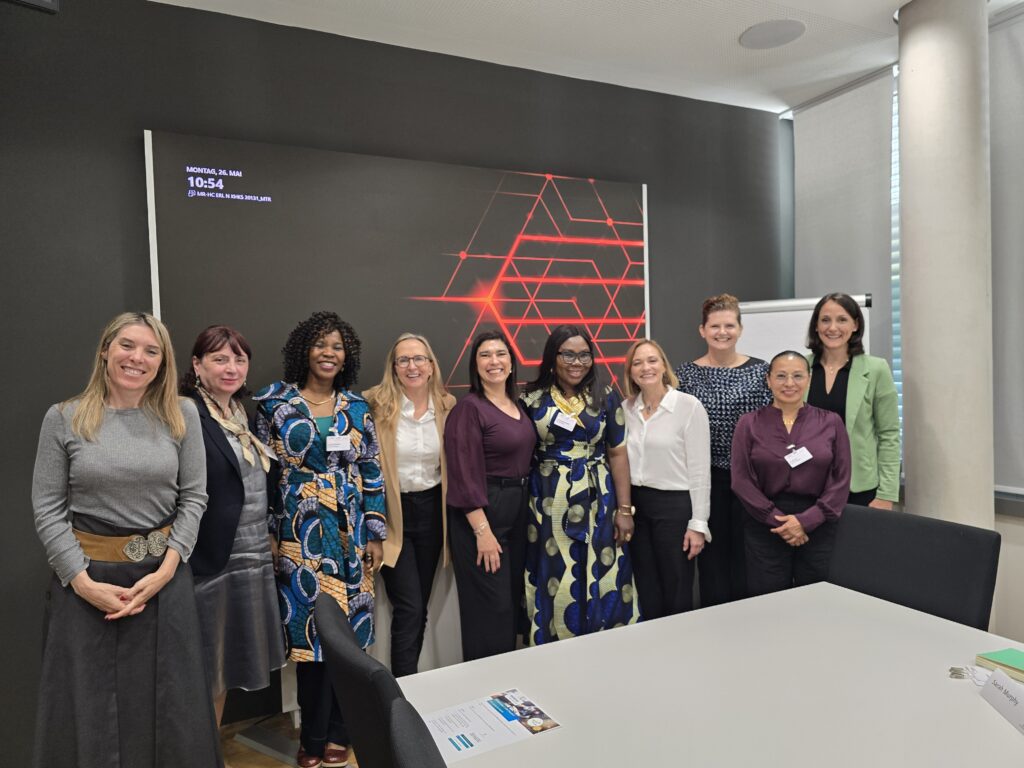
Investing in Women and Health: A Foundation for Resilient Futures
Investing in women and health is not just essential for achieving equity, it is a foundational pillar of building a thriving, resilient future. Addressing health gaps could equal 137 million more women in full-time work by 2040 unleashing transformative potential across health systems, economies and communities. This represents a powerful opportunity to reshape the future, where resilient health systems, inclusive economic growth, and social justice go hand in hand. The vision for the near future is that, building on lessons learned from implementing the gender-responsive framework in the three demonstration cities – Tbilisi, Nairobi and León- C/Can will not only establish strong foundations in these cities, but also develop a robust implementation roadmap to be shared and adopted by other cities in the coming years. C/Can believes that by consistently applying a gender lens to its work, it can drive meaningful improvements in health and well-being for women in all their diversities, while also contributing to the reduction of health inequalities for everyone, everywhere.
Although the challenges ahead remain significant, the collective action catalysed by C/Can’s and its partners is already laying the groundwork towards improving access to equitable and quality cancer care. At the heart of this progress is the leadership, expertise and lived experience of women, such as the C/Can Global Gender Group, driving change from the ground up.
I envision the future where women will lead not only as care leaders but also as architects of change, where cancer care is co-designed with patients. Where gender data-driven decisions reflect women’s realities, and where leadership includes all voices. C/Can’s Women and Health strategy gives us that foundation. Through that we started thinking leadership not as hierarchy but as a collaboration based on lived experiences. My hope is that this approach becomes the new approach for global cancer governance.
Dr. Julia Ismael, CGGG member, Argentina.
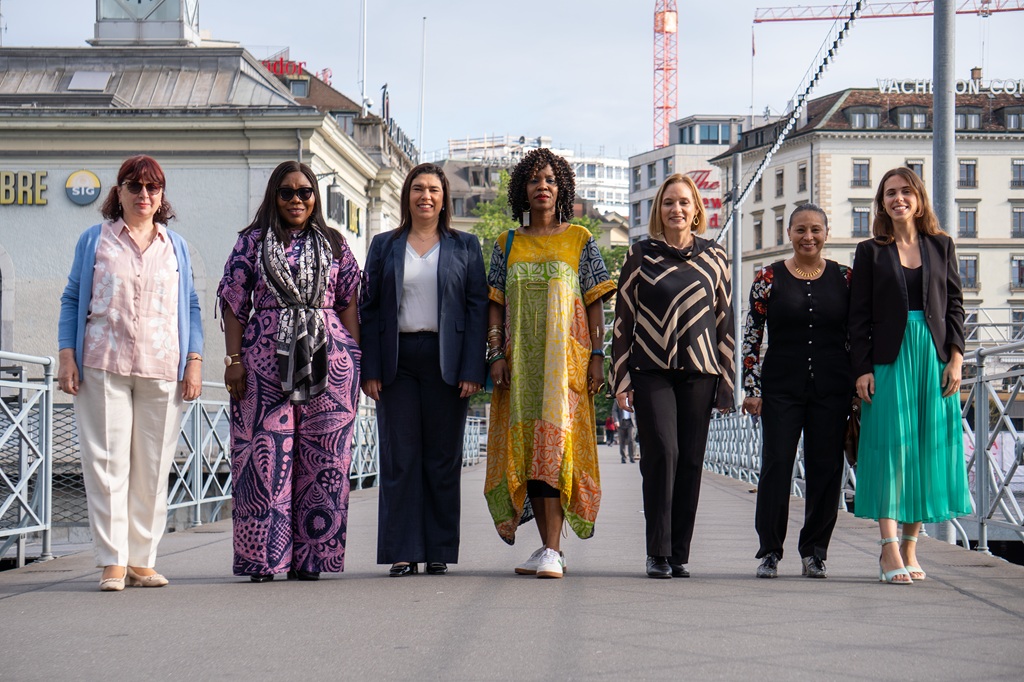
*The implementation of C/Can Women and Health Strategy is made possible thanks to the support of Amgen, Global Focus on Cancer (a US charitable organisation supported by donations from Eli Lilly and Company), MSD, Roche, and Siemens Healthineers.





